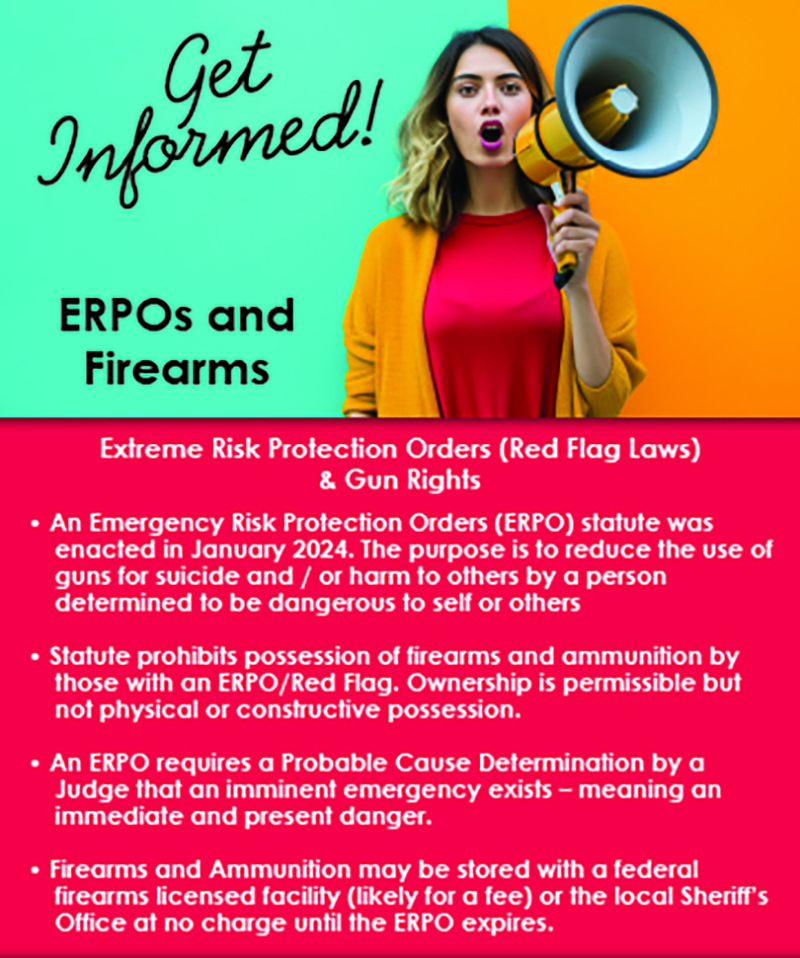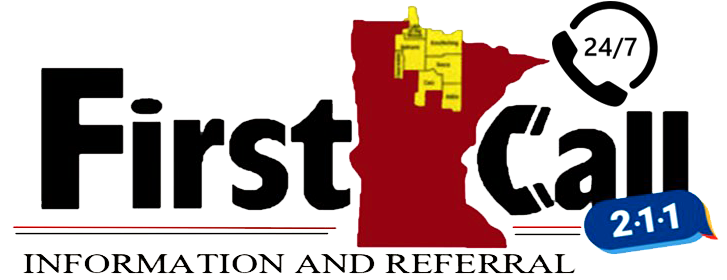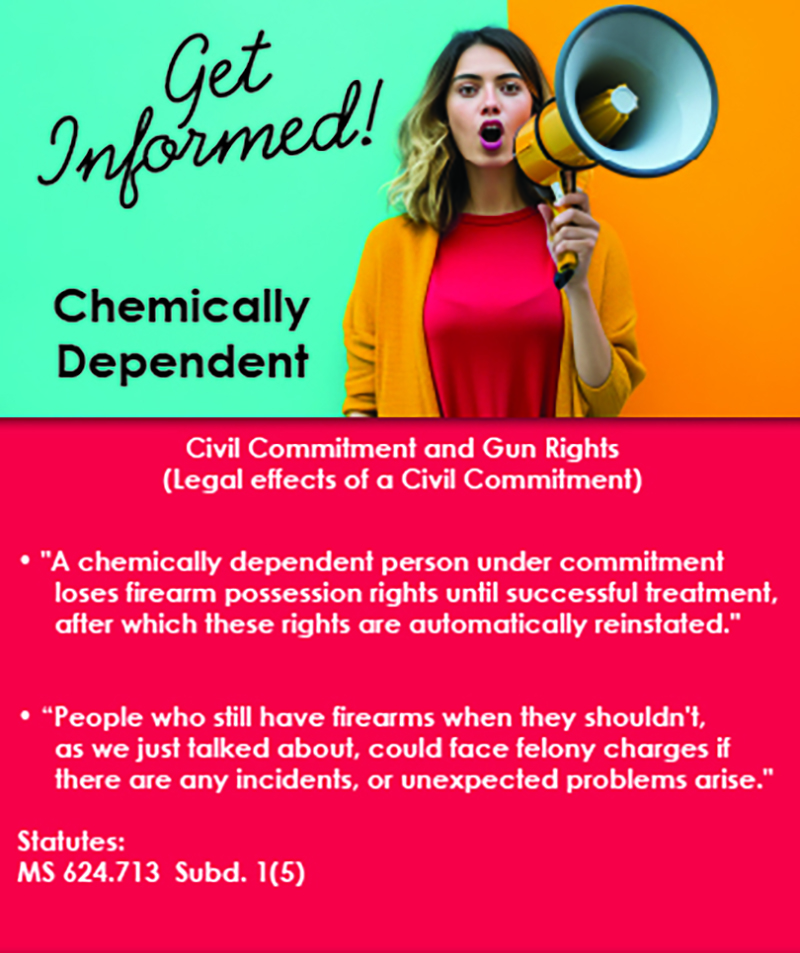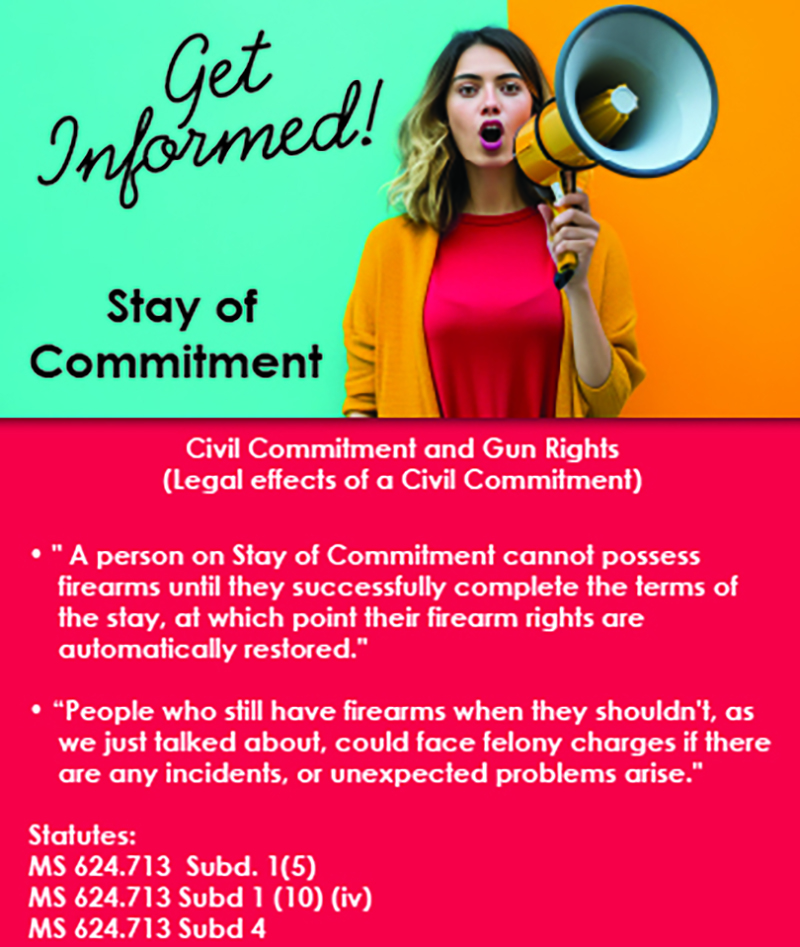Get Informed - About Your Gun Rights.

- Chemical Dependent
- Stay of Commitment
- SPMI,DD, MI & D
- Medical Marijuana
- Red Flag Laws
- Power of Attorney
- Guardianship
- MH Directive
- Disorder Fact Sheets
Statutes:
MS 624.713 Subd. 1(5)
Statutes:
MS 624.713 Subd. 1(5)
MS 624.713 Subd. 1(10)(iv)
MS 624.713 Subd 4

Process To Regain Gun Rights
To begin the process of having your rights to own or possess firearms or ammunition, or to inform someone else of the process of having them restored, use Minnesota Court Document FIR201 to petition the court in the county that held jurisdiction over the commitment. FIR201 can be found on www.mncourts.gov/GetForms and provides instructions and requirements to begin petitioning the court.
To petition the court in Itasca County, fill out form FIR201, and contact Itasca County Court Administration at 218-327-2870 to begin the process of bringing your motion before a judge. The court administrator will have additional paperwork to fill out and a filing fee may be required. A hearing will be scheduled following the processing of the application.
Statutes:
MS 624.713 Subd. 1(5)




